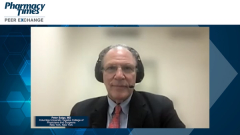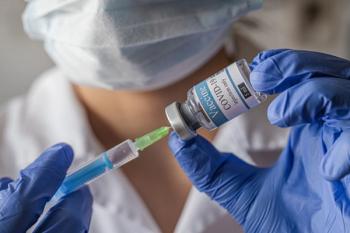
Are COVID-19 Booster Shots Necessary?
Key opinion leaders debate on the necessity of COVID-19 booster shots.
Episodes in this series

Peter Salgo, MD: We’re going to have a show of hands; are the booster shots necessary? Does anybody want to say yes? We’ve got 1 yes, Angie, 2.
Angela Rasmussen, PhD: Yes, for the long term. I’m going to qualify that by saying that I completely agree with everything that Donald just said, and I think that it is a critical point that’s being missed in a lot of these booster discussions. As Jason alluded to a little earlier in this discussion, if you refuse a booster in the United States or in Canada, that shot is not going to go to one of these countries that really needs the vaccines due to distribution contracts because of the way the vaccines are distributed and supplied. I think that the boosters may be necessary for everybody for long-term immunity. Are they necessary now to prevent the severe disease that Donald was talking about earlier? For a lot of people, probably not. Are these really 3-shot vaccine regimens, at least for the mRNA vaccines, and a 2-dose regimen for the adenovirus-vectored vaccines? I do think that they are. The question really is: at what point do you need to deliver those boosters to make sure that everybody is safe? At what point is it urgently needed? I would argue that in people who are low risk for severe COVID-19, boosters are not urgently needed, even though long term they may be needed for that duration of immunity.
Donald Alcendor, PhD: Angie, can we take one step back and look at these specific points? That is, the United States basically felt that they were urged to provide boosters because of the data coming out of Israel, the number of breakthrough infections that were coming out of Israel. They saw in the 15,000 individuals in elderly care facilities, antibody levels go down from the summer to the spring. However, we are using antibody levels as a surrogate marker for immunity. We never talk about T-cell or cell-mediated immunity as a clear marker that must be looked at. When you have an immune response to an antigen, T cells are very important in terms of helping B cells to differentiate and make antibodies. Of course, T cells are also important through soluble factors to activate cytotoxic T cells and edit their ability to kill infected cells.
Peter Salgo, MD: Let me ask the obvious clinical question then: is there a clinical correlation? Are we seeing more people with severe infections 8 to 12 months out than we expected? Is that a reason for the boosters, or is it simply based as you suggest on antibody levels that are measured?
Angela Rasmussen, PhD: I agree with Donald. Go ahead, Jeff.
Jeff Goad, PharmD, MPH: I was just going to say to take a little bit of the counterpoint here, which is looking at variants coming out. One of the things we know is that although we’re concerned about the 30-plus changes to the spike protein in the Omicron variant that’s coming out, there are data that also suggest that higher antibody levels can also help to combat a variant that comes out. Without changing the vaccine, which is also being discussed, changing the makeup of the vaccines, we can also overwhelm the virus by a higher antibody titer that we’re getting with the booster. There may be some protection here that we’re overlooking, especially with new variants coming out. As you pointed out, in Africa if we’re not able to vaccinate, they only have 6% vaccinated all over the African continent, then we’re going to be seeing variants coming out very often.
Peter Salgo, MD: I want to thank you at home for watching this Peer Exchange discussion. If you enjoyed the content, subscribe to our e-newsletters to receive upcoming Peer Exchanges and other great content right in your inbox.
Transcript edited for clarity.
Newsletter
Stay informed on drug updates, treatment guidelines, and pharmacy practice trends—subscribe to Pharmacy Times for weekly clinical insights.































